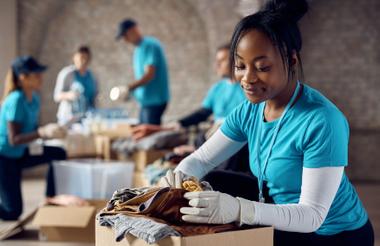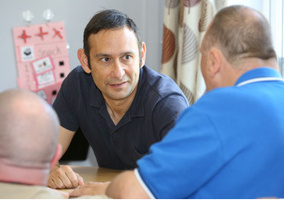Some 38% of Black, Asian and minority ethnic (BAME) volunteers are volunteering less often due to the cost-of-living crisis, according to a survey by Human Appeal.
This compares to 30% of non-BAME volunteers, who are reducing their volunteering hours for the same reason.
Despite this, 36% of BAME volunteers said they would now volunteer more as a result of the crisis, compared to 23% of non-BAME volunteers.
Human Appeal surveyed 1,003 active volunteers in the UK to collect the data. Over 30% self-identified as BAME, 65% identified as non-BAME and the remaining 5% were unsure.
The survey found that on average, BAME respondents volunteered more than their non-BAME counterparts.
Volunteering less in favour of paid employment
Some 47% of BAME respondents said they had chose to volunteer less because they needed to spend more time working in paid employment to combat the cost-of-living crisis.
Two-fifths (41%) said they had new responsibilities related to the effects of the financial crisis that left them with less spare time to volunteer.
Some 22% felt “too exhausted or disenchanted to volunteer” while 22% said they could no longer afford the costs related to volunteering.
The survey found that BAME volunteers on average experienced higher personal costs than their non-BAME counterparts.
Some 19% of BAME respondents said they lost hours of paid work as a result of their volunteering compared to 9% of non-BAME respondents.
Personal costs for travel were paid for by 16% of BAME volunteers, compared to 9% of non-BAME volunteers.
However, 29% of all the UK volunteers surveyed had no costs associated with their volunteering.
Only 8% had their expenses reimbursed by the organisation for which they volunteered.
Motivations for volunteering
BAME volunteers were three times more likely (15%) to work with refugees compared to non-BAME volunteers (5%).
The study said that the only area in which non-BAME respondents volunteered more than BAME individuals was fundraising, at 19% compared to 18%.
When asked what the primary motivation behind their volunteering was, 47% of BAME volunteers said helping their community, while 13% said to gain work experience.
BAME respondents said benefits to volunteering were a greater sense of community (48%), increased skills (40%) and increased knowledge (39%).
Human Appeal: ‘Opportunity for greater level of support’
The report states that as the cost-of-living crisis continues, support from organisations and government for volunteers is needed.
Owais Khan, deputy chief executive of Human Appeal, said: “Charity volunteers face many challenges, and we commissioned this research to broaden our understanding of their ever-changing needs and the pressures they are under.
“In our findings, it is remarkable to see the tremendous commitment and engagement of both BAME and all UK volunteers in supporting their local causes with passion and dedication.
“While it is disheartening to witness the impact of the cost-of-living crisis on these caring individuals, it presents an opportunity for greater levels of support from the wider charitable sector.”











